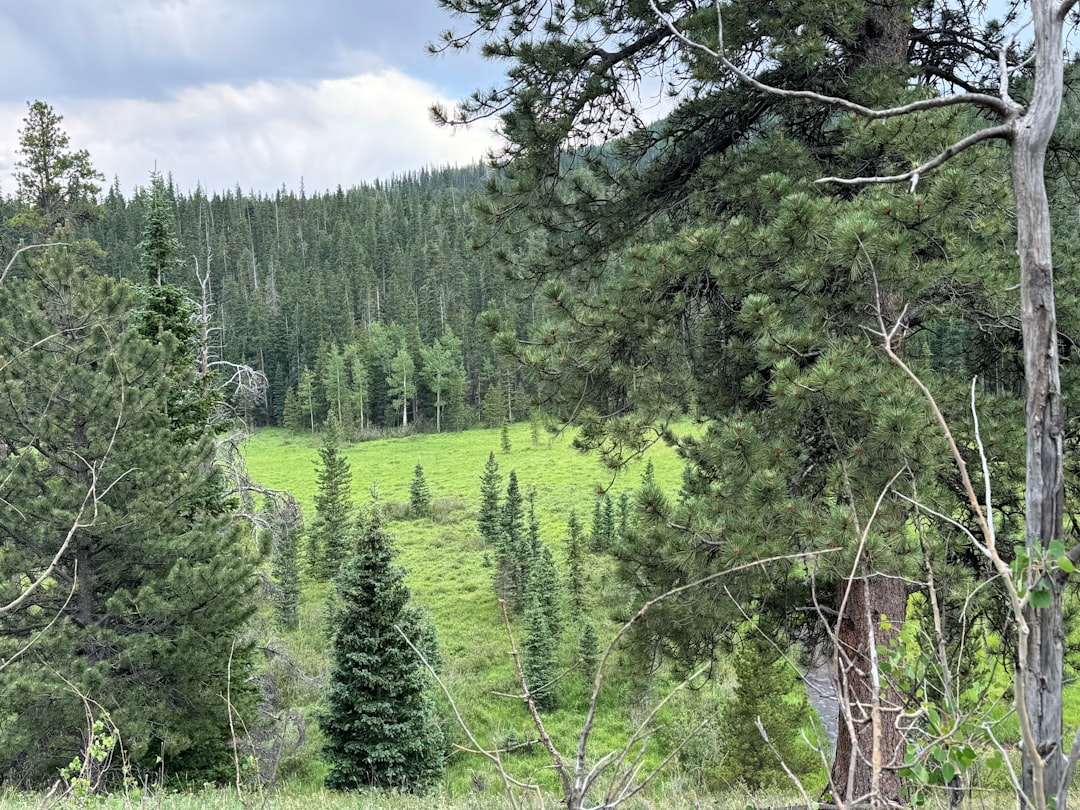

Selling your investment land in Nevada can be a shrewd financial decision for a variety of reasons. The intrinsic value of land is that it's a finite resource; they're not making any more of it, especially in a state like Nevada, where vast expanses are under government protection and urban areas are growing rapidly. This scarcity can lead to a substantial return on investment, particularly if you've held onto your property for a number of years.
Another compelling reason to sell is the dynamic shift in market demands. Nevada's appeal is ever-growing, with industries such as technology and renewable energy looking to establish roots in areas with lower tax burdens and abundant land availability. This surge in interest can translate into higher demand and, by extension, higher prices for your land. Additionally, the liquidity gained from selling your land can be reinvested into multiple ventures, potentially diversifying your investment portfolio and reducing risks.
Lastly, keep in mind the cost of holding onto your land. While land typically incurs less maintenance than developed properties, there are still taxes, fees, and potential land management costs to consider. Liquidating your asset could alleviate these ongoing expenses while also freeing up capital for other opportunities—a move that could reposition your financial portfolio advantageously.
Timing is everything when it comes to real estate transactions, and selling land in Nevada is no exception to this adage. Identifying the perfect timing can drastically alter the outcome of your sale. A key indicator for selling is economic growth within the state—during or prior to sectors such as tourism, technology, and logistics experiencing a boom, which widely open the doors for premium selling opportunities.
Additionally, seasonal cycles also play an important role. In some cases, land may be more appealing during specific times of the year; for instance, land with recreational potential is often more attractive during spring and summer months. Conversely, more investors may be active towards the end of the fiscal year as they seek to place their capital in tangible assets.
It’s also important to align the sale of your land with your personal financial goals. Whether you’re aiming for retirement, looking to fund other ventures, or merely optimizing your tax situation, these personal milestones can guide your decision on when to sell. Consulting with financial and real estate experts is advisable to help you pinpoint the most opportune moment to place your investment land on the market.

Selling land in Nevada for cash quickly can seem like a daunting task, but with the right approach and understanding of the process, it can be both efficient and rewarding.. The key is to streamline each step, ensuring that you are prepared, informed, and proactive in your actions.
Posted by on 2024-09-30

Selling land in Nevada can be both an exciting and daunting task.. Whether you’ve inherited a plot of land, invested in real estate, or simply have property that you’d like to offload quickly, the allure of cash offers is undeniable.
Posted by on 2024-09-30

Determining the market value of your Nevada land when selling for cash is a multifaceted process that involves various factors, each playing a crucial role in defining what potential buyers might be willing to pay.. Selling land for cash can be an enticing option due to its promise of simplicity and speed, but it requires a clear understanding of what makes your property valuable. First and foremost, location remains king in real estate.
Posted by on 2024-09-04

The process of a cash sale of land in Nevada, while seemingly straightforward, involves several critical steps that require careful attention to detail to ensure a successful transaction.. From the initial agreement between buyer and seller to the final transfer of ownership, each stage carries its own significance and legal implications.
Posted by on 2024-04-30
Preparing your land for sale can be a critical factor in maximizing your profits. First, consider enhancing its appeal through land clearing or adding basic improvements such as roads or utility access points. Such steps can significantly raise the value of your land by improving its usability and appeal to potential buyers.
Carrying out a land survey is also highly recommended. It establishes precise boundaries and can help identify any potential issues that could derail a sale, such as encroachments or easements. A survey can provide your buyers with the assurance they need regarding what exactly they’re purchasing.
Environmental assessments are another consideration, as they can uncover any remediation that may be required, which could impact the value or salability of the land. It’s crucial to address these potential issues before listing your property to prevent delays or loss of trust from potential buyers.


"Location, location, location" is the mantra of real estate for good reason. In Nevada, the value of your investment land is greatly dependent on its location. Urban fringe areas, those that border expanding cities, typically hold more value due to their potential for development. Similarly, land near tourist hotspots or business hubs can command premium prices due to increased demand.
In contrast, properties in remote or less accessible areas may be valued lower but could appeal to specific niches looking for seclusion, environmental conservation, or even federal land adjacency. It's imperative to know your property's specific advantages linked to its location, as this will serve as a cornerstone for your marketing strategy.
Furthermore, proximity to infrastructure, like roads, utilities, and water sources, can greatly boost land desirability. Understanding the nuanced role location plays in the context of the Nevada market is a key component in marketing your land effectively and achieving optimal sale outcomes.
When it comes to selling investment land, the right marketing strategy can make all the difference. Creating a comprehensive listing with high-quality photos, detailed descriptions, and any noteworthy selling points is the first step. Highlight key attributes such as view, topography, and potential uses based on zoning regulations—all details that resonate with potential buyers.
Employing a variety of channels to reach potential buyers is also essential. Online platforms, traditional real estate listings, social media advertisements, and even land auction services can broaden your reach. Consider leveraging SEO best practices within your online listings to improve visibility and drive targeted traffic to your land's showcase.
In addition, don't discount the value of networking. Connecting with local developers, investors, and even conservation groups, depending on the nature of your land, can lead to unexpected opportunities. Professional real estate agents or brokers with experience in land sales can be invaluable in helping craft and execute a multi-faceted marketing approach.


Understanding the legal requirements and tax implications of selling land in Nevada is vital. This means navigating through a maze of state and federal regulations. For instance, ensuring clear title is critical; any unresolved liens or disputes can complicate or nullify a sale. Engaging with a reputable title company or a real estate attorney can help streamline this part of the process.
Taxes are another critical aspect. Capital gains tax can apply to the sale of investment land, and in Nevada, there are also specific state taxes to consider. It's prudent to consult with a tax advisor who specializes in real estate transactions to understand your tax obligations and identify potential legal tax reduction strategies.
Additionally, always be transparent with potential buyers about zoning, water rights, and any land-use restrictions. Disclosure laws require you to provide certain information, and being forthcoming from the start can help prevent legal hassles down the road.
Selecting the right buyer for your Nevada investment land is about more than just accepting the highest bid. It's about ensuring that the buyer’s intentions align with the sale terms and that they have the financial stability to close the deal. Implementing a vetting process can save time and prevent potential legal battles post-sale.
Determining a buyer's credibility can be achieved through pre-qualification or requiring proof of funds before engaging in detailed negotiations. This is also where working with experienced real estate professionals can be advantageous—they have the know-how to discern serious buyers from those who might not follow through.
Remember that different types of buyers will have varying objectives. Whether it’s developers looking to construct on the land, private individuals aiming for a build-to-suit home, or corporations expanding their footprint, understanding their goals can help you determine the best candidate for your property.

You may need to consider capital gains tax if your property has appreciated significantly; consult a tax advisor to understand your specific obligations.
The purchase agreement should include property details, sale price, payment terms, closing date, and any contingencies or conditions agreed upon by both parties.
You can determine the land's value by comparing recent sales of similar properties in the area, consulting a real estate appraiser, or using online valuation tools.
You can find potential buyers by listing on online marketplaces like Craigslist or Zillow, contacting local real estate investors, or reaching out to companies that specialize in buying land.
Effective strategies include using high-quality photos and descriptions online, leveraging social media platforms, targeting local buyer groups, and offering incentives such as reduced prices for quick closings.